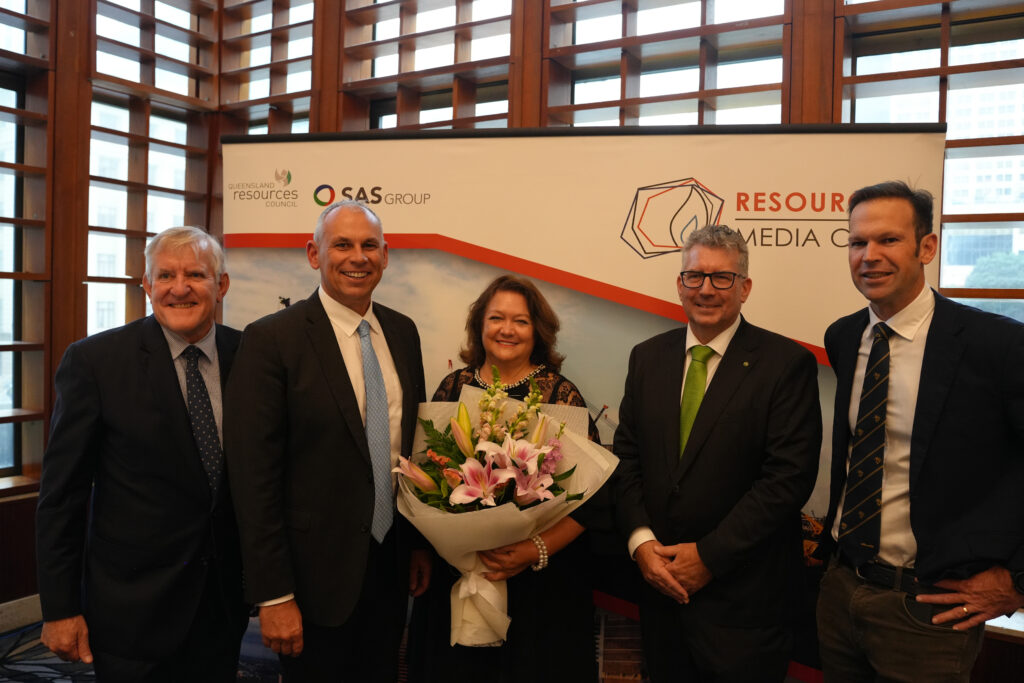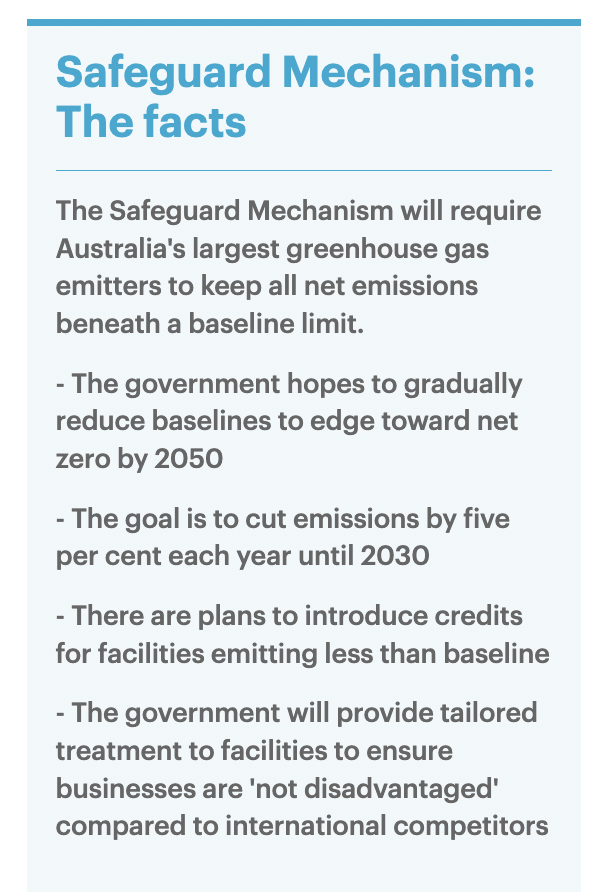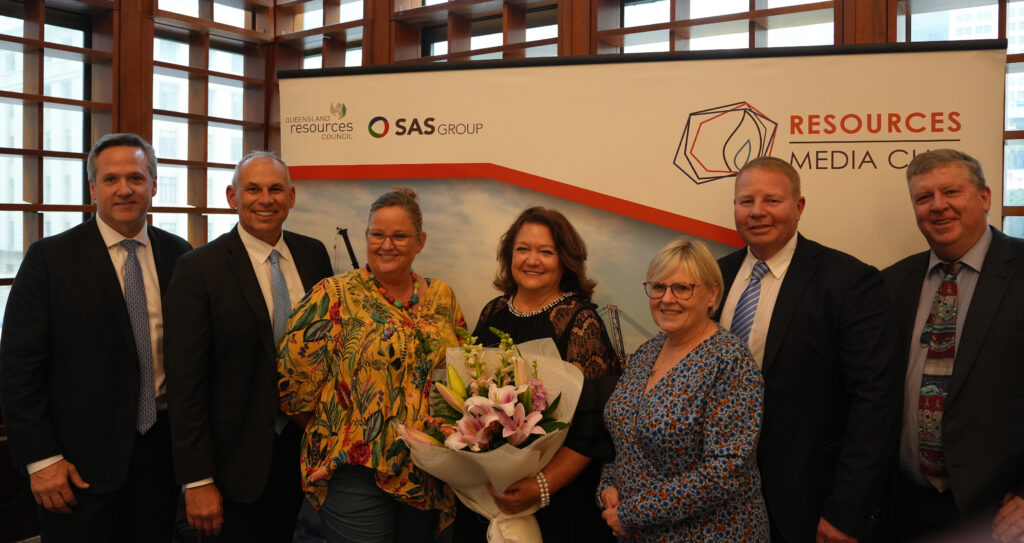
Article by Brittany Chain courtesy of Daily Mail.
Gina Rinehart has launched an extraordinary attack on Labor in a scathing speech – slamming the Federal government’s welfare policies and its forecast that 1.5million migrants will come to Australia in the next five years.
The country’s richest woman spoke at an event hosted by the Queensland Resources Council on Tuesday where she claimed Treasurer Jim Chalmers’ Federal budget surplus was built on the back of the mining industry.
The resources magnate, who is the executive chairwoman of Hancock Prospecting, said that state and federal governments would not ‘have their massive tax revenues to waste without our industries’, amid booming commodities prices.
In a ten-page speech, Mrs Rinehart also insisted governments needed to stop using pejorative two-word descriptions of mining such as ‘dirty mining’ and ‘evil mining’.
She also expressed fear that Australia would not be able to afford to ramp up its defence forces because of ‘grossly insufficient taxpayer funds … after increased welfare payments and net zero schemes’.
Mrs Rinehart also nodded to the worker shortage which is affecting several key industries across the country – with unemployment at 3.5 per cent.
She argued that veterans and pensioners face ‘onerous paperwork’ which deters them from seeking out jobs.
She said: ‘Morally this is so wrong, how can a government, knowing of the worker shortage crisis and businesses’ needs and the cost of living crisis, restrict pensioners to dreadful poverty, effectively preventing our Australian pensioners from being able to work if they wish.’
Mrs Rinehart, a top political donor to the conservative side of politics, instead proposed a retirement model similar to that used in New Zealand.
Kiwi pensioners are permitted to ‘work as much as they like and simply pay income tax like the rest of us on their work earnings’, she said.
‘Doesn’t your blood boil, when you know that our veterans, who were sent to terrible conditions overseas, many risking their lives, too many live in poverty, some even homeless on our streets, (are) not able to work more than a few hours per week in the country they served.’

Mrs Rinehart also called for Australia to mine further critical minerals. Australia produces large quantities of iron ore, nickel, aluminum, opal, uranium and copper in particular, along with natural gases.
‘Our recent federal government budget had a small surplus thanks to our industry, but still huge debt, a debt that is costing Australians in interest around $60 million each day,’ she said.
‘Let’s urgently bring more of our minerals to production, so we can achieve more funding for our defence, elderly, hospitals, police and emergency services.’
Mrs Rinehart also used her address to comment on Labor’s plan to increase migration to 1.5 million in the next five years.
She adopted a line – also used by Opposition Leader Peter Dutton – that more immigrants will place further pressure on the housing market.

‘We all know there is a housing shortage for Australians already, rents are escalating, our hospitals are inadequate without adding more, police already can’t police crime and crime is escalating, electricity requirements will increase, adding to unreliability and increased costs, and so on,’ she said.
‘If we want our standards of living to continue, we simply must have more investment in mines, more mines developed… and to ensure our government puts policies in place that actually welcome, not deter, investment.’
The billionaire said the government should focus less on handing out ‘billions of taxpayer money for unproven technologies’ and instead help to build ‘the great mines of the future’.
Pointing to the Russian invasion of Ukraine, Mrs Rinehart claimed German and US imports are ‘effectively funding the war’ and urged Australia against falling backwards and allowing Russia to ‘become the preferred supplier of energy and coal’.
She noted it’s ‘popular’ right now to restrict mining in the name of the environment, but warned it also means ‘less investment, less philanthropy, less bonuses, and less money available for salary increases.’

‘When governments choose favourites, they don’t choose well.’
The coal and gas industry suffered a ‘big hit’ in March when the Greens struck a deal with Labor on its key climate policy, the safeguard mechanism.
The law will require the country’s top 215 carbon dioxide emitters to cut pollution by five per cent per year through to 2030 and will place a ‘hard cap’ on emissions.
Greens leader Adam Bandt said the bill will include a ‘pollution trigger’ that will require the climate change minister, currently Chris Bowen, to test the impact of new or expanded polluting projects on the country’s cap and net carbon budgets.
He said: ‘There will now be, in legislation, a hard cap on actual emissions that the safeguard sector can emit.
‘This puts a limit on coal and gas expansion in this country. In fact, the limit must decline over time.
‘There will be, in law for the first time in this country, a limit on the amount of pollution that these corporations including the coal and gas corporations, can pollute.
‘I want to say to everyone who despairs about the future under our climate crisis and who is worried about their lives or their kids’ or their grandkids’, you should have a spring in your step today because we have shown that it is possible to take on the coal and gas corporations and win.’
Under the deal there will be a ceiling on gross greenhouse gas emissions, which won’t be able to exceed current pollution levels of 140 million tonnes a year, and there will be a decreasing cap over time.
